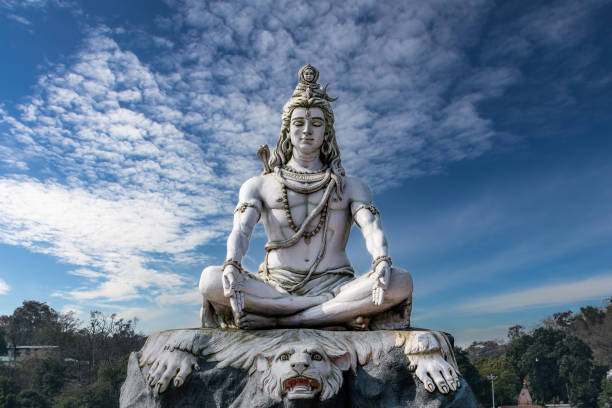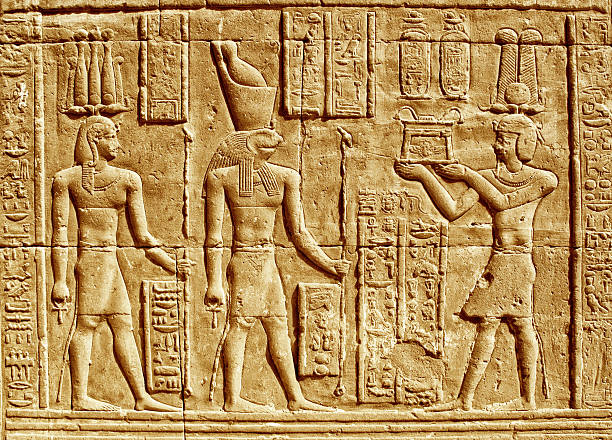Long before cannabis became the subject of modern wellness trends and legal debates, it held a powerful place in ancient myths, spiritual rituals, and symbolic systems across cultures. From goddesses associated with healing and fertility to deities of rebellion, agriculture, and inner vision, cannabis has a legacy of being more than just a plant, but an important symbol of transformation.
Ancient India: Shiva and the Sacred Plant
Perhaps the most widely recognized mythological connection to cannabis comes from Hinduism. In ancient Indian texts, cannabis (called bhang in Sanskrit) is considered one of the five sacred plants, and it is deeply associated with Lord Shiva, the god of transformation and destruction.
According to legend, Shiva discovered cannabis in the Himalayas after a heated dispute. Seeking refuge in the forest, he came upon the plant and consumed its leaves. It soothed his pain, calmed his mind, and from then on, cannabis became his favored herb.
Even today, bhang is consumed during festivals like Maha Shivaratri to honor Shiva, and it’s seen as a way to achieve spiritual clarity and divine connection.

Scythians and the Spirit World
The Scythians, a nomadic Indo-European people who lived around 700 BCE in what is now Central Asia, were known for ritual cannabis use. According to Greek historian Herodotus, Scythians would place hemp seeds on hot stones inside tents, inhale the smoke, and enter altered states of consciousness during funerary rites.
This practice wasn’t just recreational, it was believed to help communicate with the spirit world, honor the dead, and gain divine insight.
Ancient China: Ma Gu, the Hemp Maiden
In Daoist mythology, Ma Gu, also known as the Hemp Maiden or Hemp Goddess, is a revered goddess associated with longevity, healing, and the elixirs of immortality. Often depicted with flowing robes and offering sacred herbs, Ma Gu’s name literally includes the character for hemp (má).
She was believed to reside in the mountains, guard sacred healing plants, and prepare potions for the immortals. Hemp, both as a textile and a medicine, was central to her symbolism and offerings.
Africa and the Goddesses of Fertility
In several African traditions, cannabis was used ritually by women during childbirth and fertility ceremonies. Commonly known as dagga in South Africa, Sotho Herbalists would use cannabis to assist in making women “brave” and capable of managing the physical and emotional taxation of the process of childbirth.
In Zulu culture, cannabis (insangu) was sometimes smoked by diviners and herbalists to enhance communication with ancestral spirits, a sacred and medicinal act rather than a recreational one.

Ancient Egypt: Cannabis as Medicine and Ritual
In Ancient Egypt, cannabis was used both medicinally and ritually, with references dating back as early as 2,000 BCE. The Ebers Papyrus, one of the oldest known medical texts, lists cannabis (shemshemet) as a treatment for inflammation and glaucoma. It was applied topically, often mixed into suppositories or salves for gynecological conditions.
Cannabis was also associated with the goddess Seshat, the deity of wisdom, writing, and record-keeping. Some interpretations of temple inscriptions suggest cannabis may have played a role in ritual purification or divination ceremonies.
Cannabis as a Threshold Plant: Then and Now
Throughout ancient mythologies and ceremonial traditions, cannabis has functioned as a boundary-crossing agent, a botanical medium for navigating states of transition.
As we have seen, in mythology, it was associated with:
Visionary insight – used in rituals to access the divine.
Purification and renewal – burned in funerary and rebirth rites.
Fertility and feminine power – linked to goddesses and seasonal cycles.
Disruption and transformation – challenging norms, opening new paths.
Today, these symbolic roles echo in modern use. Cannabis is still used to:
Expand consciousness – through creative, spiritual, or meditative practices.
Support healing – especially in chronic pain, anxiety, or trauma recovery.
Mark personal transitions – from medical treatment to mindful rituals.
Challenge stigma and reshape narratives – around medicine, wellness, and identity.
Just as ancient cultures turned to cannabis during pivotal moments, modern users, medical, spiritual, and recreational alike, continue to engage the plant as a tool for navigating change, finding clarity, and reconnecting with self.
Why It Matters Today
As cannabis becomes more normalized in wellness and medicine, revisiting its mythological roots reminds us: this plant is not new. It has been woven into human history for millennia, honored, ritualized, and revered.
Understanding these cultural and spiritual connections isn’t just about the past. It’s about reclaiming the sacred, the intentional, and the symbolic power of the plant today.






